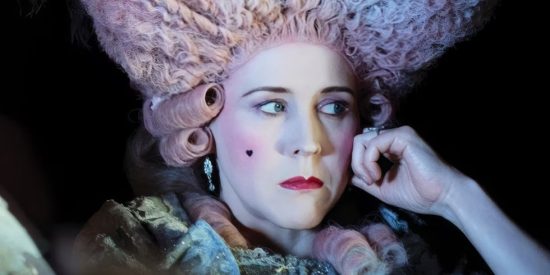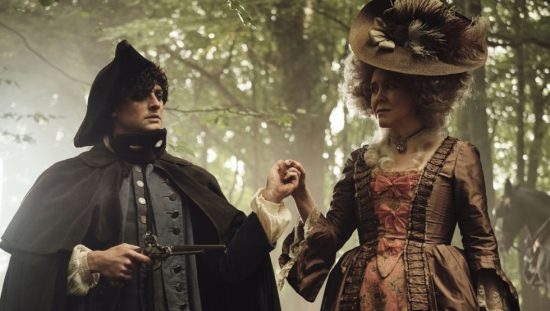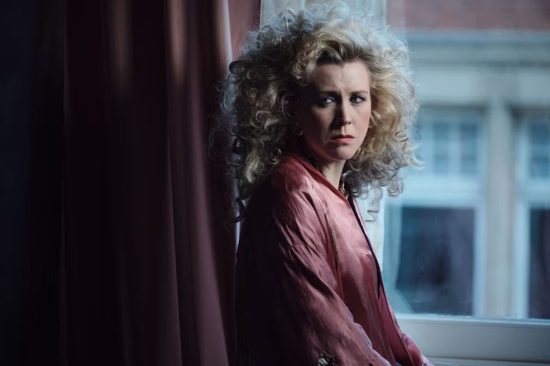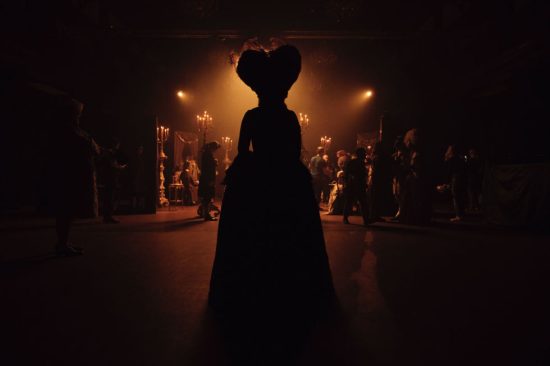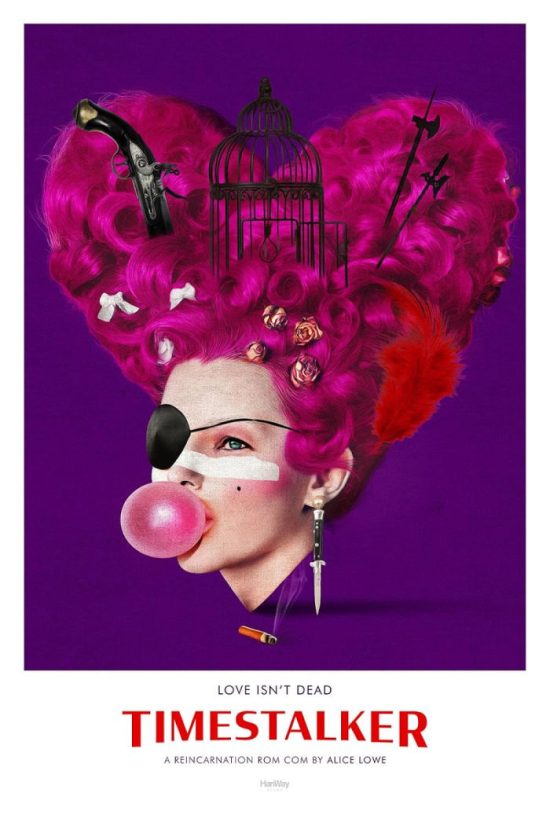EIFF 2024 Review: Timestalker – “an absolute delight”
Directed by Alice Lowe
Starring Alice Lowe, Aneurin Barnard, Jacob Anderson, Nick Frost, Kate Dickie, Tanya Reynolds
Written, directed by and starring Alice Lowe (no mean achievement in itself), Timestalker turned out to be a total delight of a film, mixing science fiction, romance and a lot of humour (often very dark), as you may expect from the woman who brought us the brilliant comedy-horror-slasher Prevenge, which featured a pregnant woman sure her unborn child is telling her to deal violently with the people in her life, and her co-writing credit and role in the brilliant dark comedy-horror Sightseers.
We meet Agnes (Lowe) spinning yarn in a small croft, the spinning reel of thread perhaps a nod to the Fates of Classical myth, and if it is such a metaphor, it probably doesn’t bode well when the dog grabs the ball of yarn and runs off with it. It’s the late 1600s in Scotland, near Edinburgh, a time of great religious strife and upheaval. Agnes attends a secret religious meeting by an enigmatic young preacher, given as they often were in that period, in the countryside, because the crown had branded such preachers heretics.
Thank you for supporting Live for Films (LFF) when you order using the affiliate links in the article. As an Amazon Associate LFF earns from qualifying purchases. If you are using an adblocker you will not see the link.
Unfortunately, they have been betrayed, and the preacher is captured by a local militia, and scheduled to be executed in public. Joining some woman friends at the town cross, there to see the execution (the others are delighted – this is entertainment!), she is horrified, not least because on gazing into the eyes of the preacher, Alex (Aneurin Barnard) she is besotted, and on trying to intervene Agnes accidentally falls against the scaffold, directly onto the sharp pike of one of the militia, killing her, while Alex, seeing his chance, makes off while the crowd is distracted.
This starts a pattern throughout the film – Agnes is reincarnated again and again in different periods. Each time , even is she has a comfortable position in her new existence, she has an ache, a longing for something, something missing from her life, but she doesn’t know what… Until she spies Alex again, also reincarnated, and suddenly it comes back to her, the memories of the previous lives, and the gruesome ends she comes to each time (“it hurts” she comments at one point on describing dying repeatedly).
We skip through historical periods, including a particularly memorable segment set in the more recent past – the 1980s – which allows for a lot of fun. Princess Di hairstyles, big shoulder pads, aerobics, people talking about “therapy”. In this era Alex is now a vacuous rock star, shining in the new MTV age (which allows for some delightful parodies of the music video styles of that period).
As she goes from life to life, and death to death, Agnes is convinced that her destiny is to be with Alex, why else would Fate keep bringing them back together each lifetime? But how does she get to be with him without, you know, having her head removed or otherwise brutally killed each and every time? The character of Scipio (Jacob Anderson, underplaying brilliantly (and almost stealing the show when he does so) also recurs repeatedly (as do her female friends from the 1600s), and offers advice; it seems as if he has some knowledge of what is going on, but can he help her? Will he, even if he can? And will love-blinded Agnes listen to him anyway? Imagine Aronofsky’s The Fountain, but with much more dark humour and a tongue often firmly in its cheek.
To say any more would be to spoil it, but suffice to say while this has elements of a time-hopping Romeo and Juliet with reincarnation, it isn’t just as it appears (as Agnes herself will need to learn), and while it has great fun playing with the periods and the ideas of pursuing unrequited love across the centuries, the film is also taking a cheeky, humorous look at life and love, how we think it is (or should be), how it often actually is, about being blinded sometimes to what we should see because we’re too busy seeing what we think we want.
Given the very stringent budget limitations on this Indy film, it does amazingly well with the period pieces (we all know how expensive those are to create), wisely giving us glimpses of some periods to give us the idea quickly, and then concentrating mostly on a couple of periods, a good use of limited film-making resources which also, I think, helps the structure of the narrative (necessity really is the mother of invention, especially for Indy creators in any medium).
It’s funny, sometimes bawdy, sometimes swooningly romantic, but throughout each lifetime it is always dancing around the issues we all think about – why are we here, who is my soulmate, do I even need a soulmate, how do I live a good life without getting my head cut off every time? Timestalker is an absolute delight that left me leaving the festival screening with a huge smile. It is hopefully getting a general release in the autumn, so I hope more of you get a chance to enjoy it.

